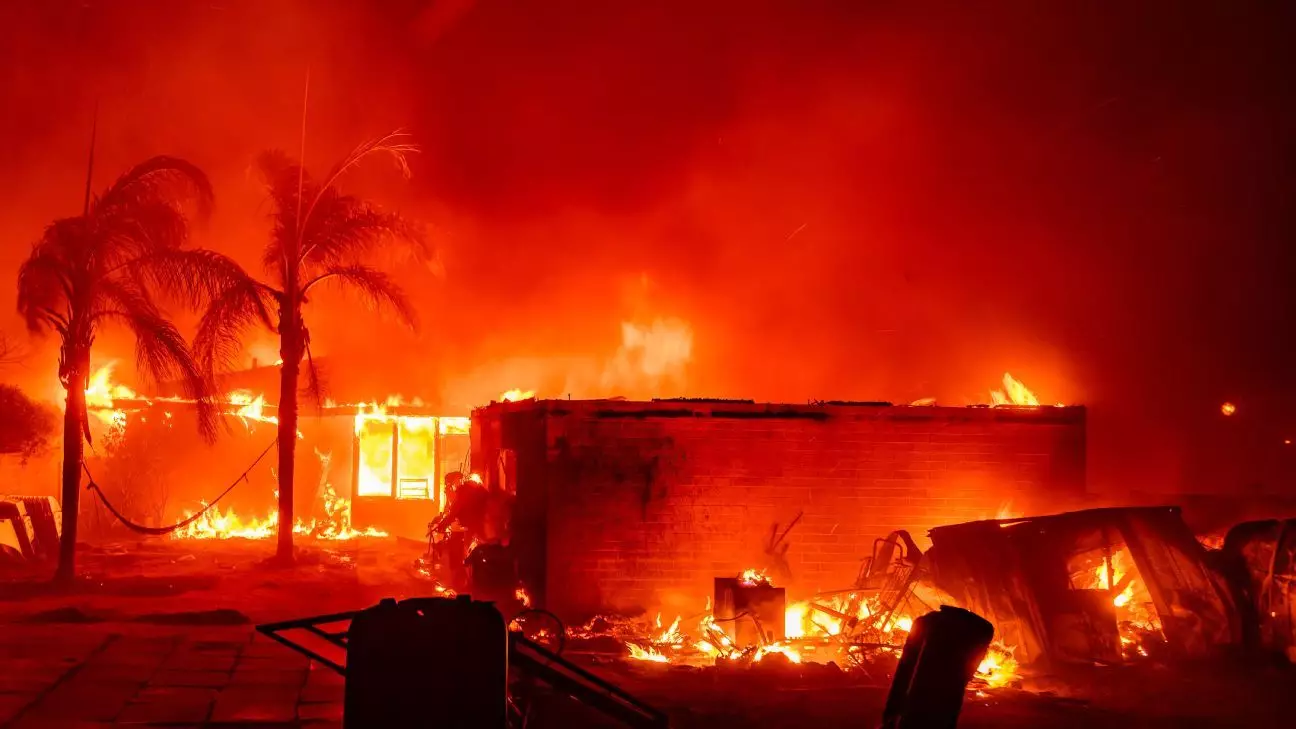The city of Los Angeles finds itself grappling with relentless wildfires that have not only led to widespread evacuations but have also posed significant challenges for public safety and air quality. As the flames rage across the region, impacting numerous neighborhoods, the community is rallying around firefighters and first responders bravely battling the blazes. The wildfires have become a somber reminder of the precarious nature of living in an area susceptible to such natural disasters, highlighting the urgent need for enhanced firefighting resources and community preparedness.
As air quality deteriorates, residents are faced with increasingly alarming conditions. Monitoring equipment indicates that the Air Quality Index (AQI) has fluctuated perilously between “very unhealthy” levels to extremes potentially harmful to everyone’s health. This directly influences daily life for Angelenos while casting an ominous shadow over upcoming local events.
In the context of this ecological crisis, the National Football League (NFL) has found itself needing to proactively manage its relationships and game schedules. With a wild-card playoff game set to take place between the Minnesota Vikings and Los Angeles Rams at SoFi Stadium, the league is taking precautions regarding potential disruptions due to the wildfires. The NFL has stated its readiness to relocate the game to State Farm Stadium in Glendale, Arizona, if air quality deems it necessary.
Contingency plans are standard protocol, yet the NFL’s quick pivot underscores the influence of environmental factors on sports—a once-unimaginable situation, now saliently real. This isn’t the first time the NFL has had to grapple with fire-related cancellations; a noteworthy precedent occurred in 2003 when a game was shifted to accommodate the safety of players and fans alike.
The Rams and Chargers, two teams deeply entrenched in the playoff atmosphere, have modified their practice schedules to account for the worsening air conditions. Rams officials communicated that while their training facility remains free of immediate danger from the fires, they are vigilant and responsive to the evolving situation. Players are expressing their solidarity on social media platforms, with sentiments focused on the importance of supporting those impacted by the wildfires.
Rams star receiver Cooper Kupp’s public messages of hope and gratitude for first responders resonate deeply within the community. Such engagement reflects a trend in professional sports where athletes increasingly take active roles in addressing societal issues. Conversely, messages of camaraderie and resilience, though heartening, cannot mask the very real changes teams are making in how they train in the midst of disaster.
The Chargers, meanwhile, have reorganized practice routines to minimize outdoor exposure for their athletes, showcasing a nuanced understanding of the balance between preparation and health. Adjusting to conditions that see air quality levels plummet has led to separate offensive and defensive unit practices, further emphasizing their commitment to player well-being.
Beyond individual teams, the broader football community has come together to provide support. The Chargers announced a generous $200,000 donation directed towards the American Red Cross and various local organizations aiding fire relief efforts. This gesture highlights the interconnectedness of the sports world and local communities, particularly in times of crisis when mutual support is critical.
As the wildfires rage on, the courage of firefighters and local authorities cannot be overstated. The firefighting community is calling for additional support, emphasizing their ongoing need for personnel to bolster the fight against the flames. Tragically, the fires have led to loss of life and injuries, illustrating a dark side of the natural disasters often overlooked in discussions about climate change and ecological preparedness.
The rise in wildfire frequency and intensity can largely be traced back to the broader implications of climate change, presenting an urgent issue that aligns with growing scientific consensus. With California experiencing a lengthening wildfire season, the intersection of rising temperatures and unpredictable rainfall patterns poses a massive challenge.
Community efforts must not only focus on immediate responses to this year’s wildfires but also emphasize long-term strategies for resilience against an increasingly erratic climate. Through heightened awareness, preparedness, and community engagement, California and, by extension, the rest of the world can work towards combating the multifaceted crises that climate change presents.
While Los Angeles faces the immediate dangers posed by wildfires, the combination of professional sports, community engagement, and climate change realities serves as a powerful narrative of resilience, adaptation, and hope in an era where unpredictable elements continue to reshape our lives.


Leave a Reply